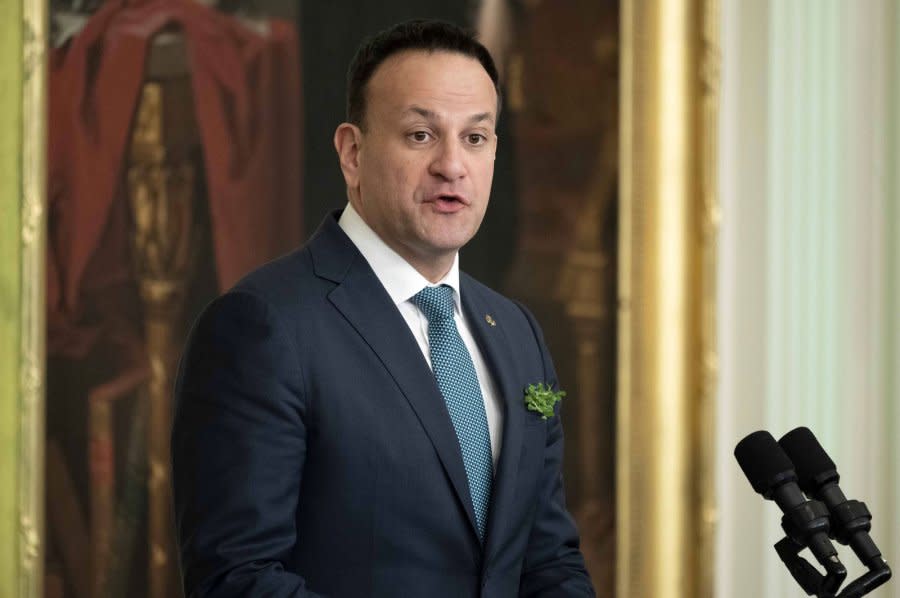Irish voters hand resounding defeat to proposed family and care amendments

March 9 (UPI) -- Voters on Saturday rejected two amendments to Ireland's constitution that aimed to give more inclusive language around family and caregivers.
Some 67% of voters said "no" to the Family referendum, which proposed changes to the 39th Amendment, expanding the definition of family in the constitution to recognize "durable relationships" such as unmarried couples with children.
The Care referendum, a proposed change to the 40th amendment that would have replaced language around "women in the home" with language recognizing family caregivers who are not mothers, lost by an even wider margin, with almost 74% voting no.
Taoiseach Leo Varadkar admitted defeat in both referendums hours before the full results were announced.
"The family amendment and the care amendment referendums have been defeated -- defeated comprehensively on a respectable turnout," he said.
Turnout was 44.36%, a 19% drop from turnout in Ireland's 2018 abortion referendum.
Before ballots were cast, Varadkar had said "no" votes would be a "step backwards," sending the wrong message to unmarried couples and maintaining "very old-fashioned language" about women.
Few people, however, regarded the results as conservative backlash. Some feminist and progressive groups have criticized the referendums "vague" and "insipid."
Critics accused the government of running a "lackluster" campaign that confused voters and alienated progressive allies.
Some groups worried widening the definition of families could affect rules on taxes and citizenship. Similarly, there were worries that expanding the burden of care from women to the whole family ignored the state's responsibility.
Regarding the Family referendum, Aontú party leader Peadar Toibín said voters did not say "no" to cohabiting parents but rather "no" to government incompetency in developing the amendments. He said nobody understood what the phrase "durable relationship" was supposed mean, not even government ministers.
"The leadership of those parties are marooned from their support base... That's a very dangerous place to be in advance of an election," Toibín said.
Labour Party Leader Ivana Bacik, who had campaigned for "yes" votes, laid responsibility for defeat solely on the government.
"There was a very lackluster government campaign, and I think that's unfortunate," she said, noting the government ignored alternative wording proposed by the legislature's gender equality committee.
The defeat in both referendums prompted calls for prominent campaign leaders, such as Children's Minister Roderic O'Gorman to resign.
Eamon Ryan, Green party leader and transport minister, said there will not be another attempt at a referendum before the next election.


